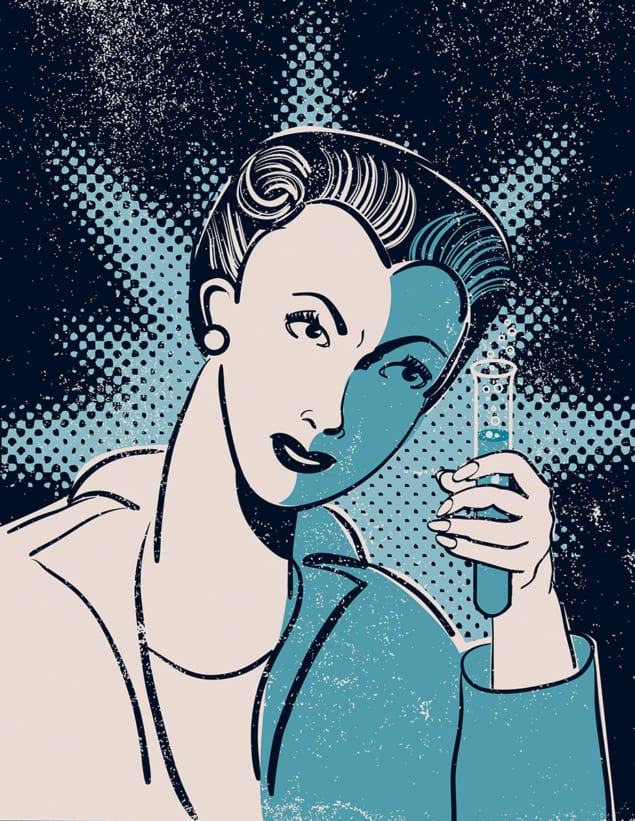Kate Gardner reviews Lessons in Chemistry by Bonnie Garmus

The power of fiction is its ability to elucidate truths that you know are real but have never personally experienced. Fiction can, for example, give a sense of how female scientists were routinely treated in the 1950s and 1960s even if you’ve never been in such a position yourself. And that’s exactly what Bonnie Garmus – a London-based writer – manages to achieve in her bestselling novel Lessons in Chemistry.
Its main character is Elizabeth Zott, who’s a chemist, and a good one, but sexism keeps frustrating her life and career. Worse still, her PhD supervisor sexually assaults her. When she eventually gets a job in a lab, Zott is never allowed to be one of the (otherwise all-male) team. She’s also paid less, excluded from conversations, denied access to equipment and never given an author credit when her research is published. Plus, Zott receives constant sexist remarks and is told she will lose her job if she gets married or pregnant.
A wonderful character who takes none of this lightly, she refuses to play along with expectations, which eventually costs Zott her job. Backed into a corner, she takes the one opportunity she is offered and becomes the host of a TV cooking show. But even here she won’t be the benign housewife-style personality the TV network wants. Instead, Zott uses this chance to teach the women of America about chemistry through the medium of cooking. She never talks down to her audience, knowing that most women are perfectly capable of grasping scientific concepts if only they get access to someone who will teach them.
I have never before read such a clear account of sexism in science, depicting both the big issues and the smaller ones that become big as their numbers and frequency pile up. And while some of Zott’s problems are no longer legal, a lot of these issues remain today in science. Women are still paid less than men. Their careers progress more slowly. They are less likely to be credited as first author on papers (or credited as authors at all). They are more likely to be saddled with admin, and bullying and sexual harassment are still rife.
By making Zott a forthright, no-nonsense, determined character, Garmus has managed to show her readers, by omission, why there were so few women in science at a time when record numbers of women were going to university. Not everyone can stand up to that level of being bullied, belittled, ignored, excluded and/or abused – and neither should they have to.
Inferiority is complex
Despite these heavyweight issues, Lessons in Chemistry is a delight to read. It’s funny, full of warm characters with quirks that are never annoying or subjected to mockery by the author. It is well deserving of its global success and I can only hope that its large readership means more people come to understand the severity of sexism in the workplace – then and now.
- 2023 Penguin Random House 400pp £9.99pb




